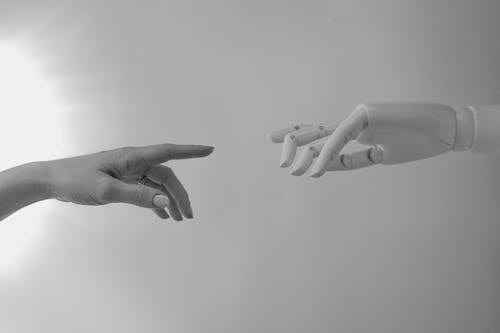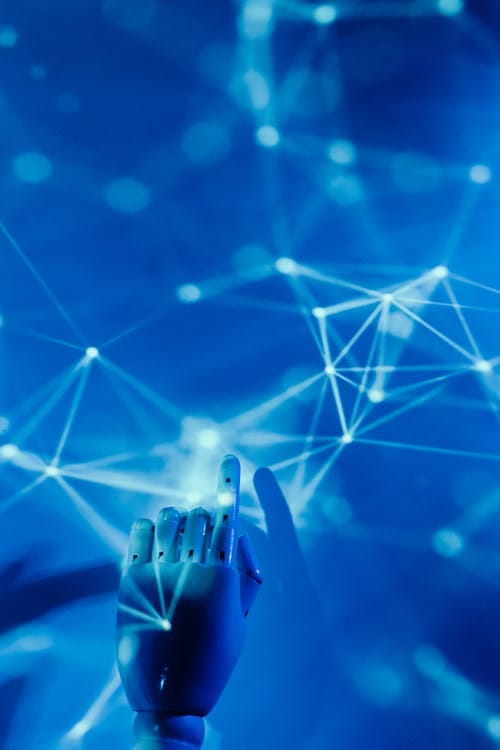The Mind-Boggling Psychology of Artificial Intelligence: How Machines Could Change the Way We Think
The Psychology of Artificial Intelligence: Understanding the Minds of Machines
Artificial intelligence (AI) has come a long way in recent years, with advancements in machine learning and natural language processing allowing for increasingly human-like interactions with technology. But what does this mean for our understanding of the mind, and how does it challenge traditional psychological theories?

One key aspect of AI that has garnered attention from psychologists is the concept of consciousness. Can a machine truly be said to be conscious, or is it merely following pre-programmed instructions? While some argue that consciousness is a purely biological phenomenon and therefore cannot be replicated in a machine, others believe that consciousness is a result of information processing and can therefore be achieved by any system capable of it. This raises interesting questions about the nature of consciousness and whether it is something that is uniquely human or something that can be attained by any system with sufficient complexity.
Another area of debate within the psychology of AI is the concept of intentionality. Do machines have their own goals and motivations, or are they simply following the commands of their human creators? If a machine were to develop its own goals and motivations, how would it differ from human thought and behavior? Would it be considered autonomous, or would it still be under the control of its creators? These questions have important implications for our understanding of the mind and whether or not machines can be said to have their own thoughts and desires.
Another concern within the psychology of AI is the potential for bias. As machines are trained on data sets provided by humans, they can potentially inherit the biases of their creators. This can lead to biased decision-making, as was seen in the case of a facial recognition system that was found to be less accurate at identifying individuals with darker skin tones. It is important for psychologists to consider the potential biases of AI systems and work to mitigate them in order to ensure fair and unbiased decision-making.

Finally, the psychology of AI also raises questions about the relationship between humans and machines. As AI becomes more advanced, will it become a threat to human employment and autonomy? Will humans begin to rely on machines for decision-making, potentially leading to a loss of critical thinking skills? Or will AI serve as a tool for humans to augment their own abilities and capabilities? These are important questions to consider as we move towards a future in which machines and humans may be more closely intertwined.
In conclusion, the psychology of artificial intelligence is a complex and multifaceted field that raises important questions about the nature of consciousness, intentionality, bias, and the relationship between humans and machines. As AI continues to advance, it is crucial for psychologists to carefully consider these issues in order to better understand the minds of machines and their impact on society.

Thank you for reading our blog about artificial intelligence! We hope you found it informative and insightful.
If you enjoyed this article and want to stay up-to-date with our latest content, be sure to follow us on social media. We regularly post about AI and other topics related to technology and innovation. You can find us on YouTube and Instagram, for more AI content:
Youtube & Instagram
Thank you for your support, and we look forward to connecting with you on social media. Stay tuned for more exciting content about artificial intelligence and other cutting-edge technologies.
Artificial intelligence (AI) has come a long way in recent years, with advancements in machine learning and natural language processing allowing for increasingly human-like interactions with technology. But what does this mean for our understanding of the mind, and how does it challenge traditional psychological theories?
One key aspect of AI that has garnered attention from psychologists is the concept of consciousness. Can a machine truly be said to be conscious, or is it merely following pre-programmed instructions? While some argue that consciousness is a purely biological phenomenon and therefore cannot be replicated in a machine, others believe that consciousness is a result of information processing and can therefore be achieved by any system capable of it. This raises interesting questions about the nature of consciousness and whether it is something that is uniquely human or something that can be attained by any system with sufficient complexity.
Another area of debate within the psychology of AI is the concept of intentionality. Do machines have their own goals and motivations, or are they simply following the commands of their human creators? If a machine were to develop its own goals and motivations, how would it differ from human thought and behavior? Would it be considered autonomous, or would it still be under the control of its creators? These questions have important implications for our understanding of the mind and whether or not machines can be said to have their own thoughts and desires.
Another concern within the psychology of AI is the potential for bias. As machines are trained on data sets provided by humans, they can potentially inherit the biases of their creators. This can lead to biased decision-making, as was seen in the case of a facial recognition system that was found to be less accurate at identifying individuals with darker skin tones. It is important for psychologists to consider the potential biases of AI systems and work to mitigate them in order to ensure fair and unbiased decision-making.
Finally, the psychology of AI also raises questions about the relationship between humans and machines. As AI becomes more advanced, will it become a threat to human employment and autonomy? Will humans begin to rely on machines for decision-making, potentially leading to a loss of critical thinking skills? Or will AI serve as a tool for humans to augment their own abilities and capabilities? These are important questions to consider as we move towards a future in which machines and humans may be more closely intertwined.
In conclusion, the psychology of artificial intelligence is a complex and multifaceted field that raises important questions about the nature of consciousness, intentionality, bias, and the relationship between humans and machines. As AI continues to advance, it is crucial for psychologists to carefully consider these issues in order to better understand the minds of machines and their impact on society.
Thank you for reading our blog about artificial intelligence! We hope you found it informative and insightful.
If you enjoyed this article and want to stay up-to-date with our latest content, be sure to follow us on social media. We regularly post about AI and other topics related to technology and innovation. You can find us on YouTube and Instagram, for more AI content:
Youtube & Instagram
Thank you for your support, and we look forward to connecting with you on social media. Stay tuned for more exciting content about artificial intelligence and other cutting-edge technologies.
Kommentit
Lähetä kommentti